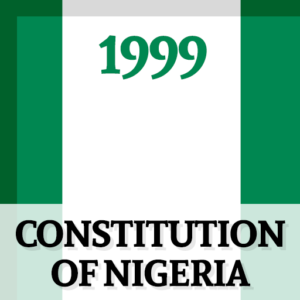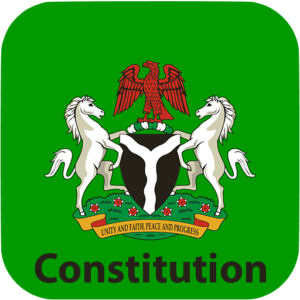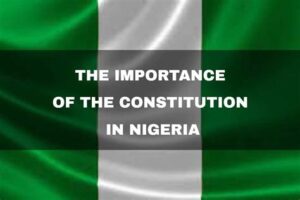Back to: Religion and National Value JSS 3
Welcome to class!
In today’s class, we’re going to be talking about the meaning and types of constitution. I trust you will enjoy the class!
Meaning and Types of Constitution
Meaning of Constitution

A constitution is a set of fundamental principles or established precedents that constitute the legal basis of a state, governing the behavior of its members and the government. It is often referred to as the law of the land which outlines the structure of the government, the distribution of powers and responsibilities, and the rights and duties of citizens.
For Examples:
– The Constitution of India begins with a preamble which declares India to be a sovereign, socialist, secular, and democratic republic.
– The United States Constitution starts with the famous phrase “We the People,” emphasizing that the government’s power comes from its citizens.
Types of Constitution

There are several types of constitutions, each with unique features and examples:
- Written and Unwritten Constitution
– Written Constitution: This is a formal document defining the nature of the constitutional settlement, the rules that govern the political system, and the rights of citizens and governments. It is usually rigid and difficult to amend.
– Example: The Constitution of the United States is a written constitution.
– Unwritten Constitution: This type of constitution is not contained in any single document. It is formed by statutes, conventions, judicial decisions, and practices.
– Example: The United Kingdom has an unwritten constitution, derived from various sources like common law and parliamentary statutes.
2. Flexible and Rigid Constitution
– Flexible Constitution: Can be amended or changed easily, similar to ordinary laws.
– Example: The British Constitution is considered flexible as it can be amended by a simple majority in Parliament.
– Rigid Constitution: Requires a special procedure for amendment, often involving a higher authority than the usual legislative process.
– Example: The Constitution of the United States is rigid, requiring a two-thirds majority in both houses of Congress and ratification by three-fourths of the states.
3. Unitary and Federal Constitution

– Unitary Constitution: Centralizes power in one central government, with any regional authorities deriving their powers from it.
– Example: France operates under a unitary system.
– Federal Constitution: Power is divided between a central government and regional governments.
– Example: Nigeria has a federal constitution, with powers shared between the Federal Government and the States.
- Democratic, Republican, and Monarchical Constitution
– Democratic Constitution: Ensures that the rulers are elected by the people and for the people.
– Example: India has a democratic constitution.
– Republican Constitution: The head of state is usually an elected president.
– Example: Germany is a federal republic with a republican constitution.
– Monarchical Constitution: A monarch is the head of state within the parameters set by the constitution.
– Example: The United Kingdom has a constitutional monarchy.
- Presidential and Parliamentary Constitution
– Presidential Constitution: The president is both the head of state and the government, elected separately from the legislature.
– Example: The United States follows a presidential system.
– Parliamentary Constitution: The executive is derived from the legislative branch, and the head of state is different from the head of government.
– Example: The United Kingdom has a parliamentary system.
We have come to the end of today’s class. I hope you enjoyed the class!
In the next class, we shall be discussing features of Colonial Constitutions.
In case you require further assistance or have any questions, feel free to ask in the comment section below, and trust us to respond as soon as possible. Cheers!
Question Time:
- What is a constitution, and why is it considered the supreme law of the land?
- Describe the difference between a written constitution and an unwritten constitution with examples.
- Explain how a flexible constitution differs from a rigid constitution. Can you name a country with a flexible constitution?
- What are the main characteristics of a unitary constitution? Give an example of a country with this type of constitution.
- Compare and contrast a federal constitution with a unitary constitution. Which type does Nigeria have?
